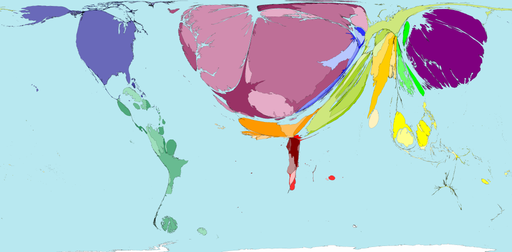Hot on the heels of the new Brazilian system for tracking and regulating access to genetic resources comes news of a similar set-up in Peru. Read all about it – both of them, in fact – at SciDevNet.
Good ethnobotanists have healthier children
A study of the Tsimane, an indigenous group of foragers and farmers inhabiting a remote area of the Amazon lowlands of Bolivia, has determined that mothers who are more knowledgeable about plants and their uses tend to have healthier children. According to this summary of the results, Dr Victoria Reyes-GarcÃa, one of the co-authors of the study, pointed out that “globalization threatens this knowledge to the extent that formal schooling and jobs in emerging markets devalue folk knowledge and provide access to products not made from local resources, but without providing adequate medical treatment substitutes.” I’ll have to find the original paper, because what the summary doesn’t say, and which it would be great to know, is whether better ethnobotanical knowledge translated into more diverse family gardens and more diverse diets.
Cool cartograms
Cartograms are maps where the sizes of territories (countries, say) are proportional not to the surface area of their real-world counterparts, but rather to the value of some other attribute, like population or GDP or incidence of malaria. You can see lots of really wonderful examples on the Worldmapper website. That includes a few agricultural variables and some forestry stuff. Here’s an example of the former, net imports of vegetables by $ value.

As I said earlier in connection with Gapminder, wouldn’t it be great to be able to produce cartograms from FAOSTAT data? Or what about from the data in SINGER? Well actually that shouldn’t be all that difficult, the code for making your own cartograms is available, according to Worldmapper’s FAQ. Any volunteers?
Cartogram © Copyright 2006 SASI Group (University of Sheffield) and Mark Newman (University of Michigan), reproduced by permission. Worldmapper is at: www.worldmapper.org
Climate change and extinction
Predicting the effects of climate change on biodiversity is very much a growth industry, and understandably so. I’ve contributed to it myself (together with lots of friends), as I immodestly noted here in a previous posting. Many studies have predicted drastic increases in rates of extinctions, but then, why have so few species gone extinct during the past 2.5 millions years of recurring ice ages? This “Quaternary conundrum” is addressed in a new paper announced, and available for downloading, here. The conclusion of the 19 co-authors is that current approaches do not adequately take into account the factors which allow species to persist when conditions change for the worse. They make eight recommendations for improving predictions, ranging from better models to better validation of model results. Well worth reading.
PestNet
Yesterday’s post about Google and Yahoo Groups reminded me that I had planned to mention PestNet in this forum at some stage. “PestNet is an email network that helps people in the Pacific and South East Asia obtain rapid advice and information on plant protection, including quarantine.” The way it works is that you just send in your query by email, preferably with some photos attached, and, after moderation by dedicated and knowledgeable volunteers, your question is posted to all PestNet members (via a Yahoo Group). You can ask for help in identifying a pest or symptoms, or for advice on how to deal with a particular problem, anything to do with plant protection (which is interpreted pretty broadly). If anyone has an answer – and there are hundreds of PestNet members, so the chances are good that someone somewhere will know something that will be of help – they write back, and you’re hopefully on your way to a solution. I believe there is a similar service, which is completely free by the way, for the Caribbean and plans for something in Africa. I think it’s a really wonderful way of sharing knowledge in a very focused way. I wonder if something similar would be useful in plant genetic resources?